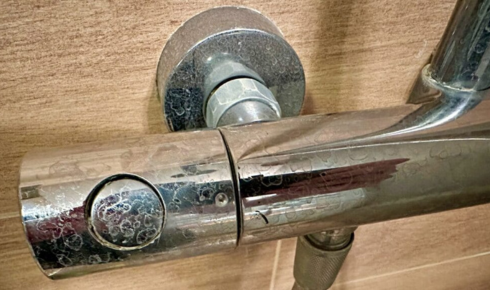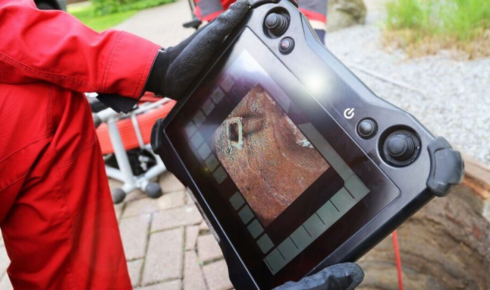There’s something about stepping into the shower or doing laundry and noticing that things just don’t feel right. Soap doesn’t lather as it should, your skin feels dry, and your dishes come out with streaks no matter how carefully you wash them. If this sounds familiar, your home might be dealing with hard water. While it’s a common issue, understanding the causes of hard water and the ways to address it can make a huge difference in your daily life.
When I first moved into a house with hard water, I thought I was imagining things. The faucets had a chalky residue, the shower left my skin tight, and even my coffee maker seemed to clog faster than usual. Over time, I learned that these weren’t coincidences—they were classic signs of hard water. Recognizing the problem is the first step toward finding a solution.
What Is Hard Water?
Hard water is essentially water that contains a high concentration of minerals, primarily calcium and magnesium. These minerals aren’t harmful to health—in fact, they can be beneficial in small amounts—but they cause a range of issues for households. From soap scum on sinks to scale buildup in pipes and appliances, the effects of hard water are noticeable and sometimes frustrating.
Understanding the cause of hard water is actually fairly straightforward. Water becomes hard when it moves through mineral-rich soil and rock, dissolving calcium and magnesium along the way. The longer water spends in contact with these deposits, the higher the mineral concentration, and the harder the water becomes. Geography plays a role too; areas with abundant limestone, chalk, or dolomite deposits often have harder water than regions without these minerals.
How to Recognize Hard Water
Identifying hard water is easier than you might think. Some signs to watch for include:
- White, chalky deposits around faucets and showerheads
- Soap that refuses to lather properly
- Spots on glassware and dishes after washing
- Dry skin or hair after showering
- Appliances like water heaters, coffee makers, and dishwashers requiring frequent maintenance
Even if you don’t notice every symptom, a combination of these indicators often points to a hard water problem. Recognizing these early can prevent more serious issues down the line, like reduced water flow from pipe scaling or damage to household appliances.
The Impact of Hard Water
While hard water isn’t generally a health concern, its effects on daily life can be significant. Mineral deposits build up inside pipes over time, restricting water flow and reducing efficiency. Water heaters and appliances experience scale buildup, which can increase energy consumption and shorten their lifespan.
Even small household tasks feel the difference. Soap reacts with calcium and magnesium to form a sticky residue instead of lathering, leaving your skin feeling dry and hair looking dull. Laundry washed in hard water often comes out stiff or faded more quickly than expected. Recognizing these impacts highlights why addressing hard water isn’t just about aesthetics—it’s about protecting your home and improving quality of life.
Digging Deeper: Causes of Hard Water
If you’ve ever wondered about the causes of hard water, it’s largely a combination of natural geology and water sourcing. As water travels underground, it passes through rock formations containing calcium and magnesium. These minerals dissolve into the water, giving it its hardness.
Other factors can influence mineral concentration. Well water, for example, tends to be harder than municipal water because it hasn’t been treated or filtered. Municipal water often undergoes treatment for contaminants but rarely for dissolved minerals, leaving households with softening needs even when the water is considered safe to drink. Seasonal changes, droughts, and groundwater fluctuations can also impact hardness levels, making water slightly harder or softer at different times of the year.
Household Solutions for Hard Water
Fortunately, there are several ways to manage hard water and its effects. Hard water treatments range from point-of-use solutions to whole-house systems. Choosing the right approach depends on your water hardness, household size, and budget.
- Water Softeners: These systems use ion exchange to replace calcium and magnesium with sodium or potassium ions. They’re the most common solution and protect plumbing, appliances, and daily routines.
- Reverse Osmosis Systems: Typically installed under the sink, these systems provide purified drinking water free of minerals and contaminants.
- Chemical Sequestration: Some treatments add chemicals that bind with minerals, preventing them from forming deposits without actually removing them.
- Magnetic or Electronic Devices: While research is mixed, some homeowners report reduced scale and improved water performance using these systems.
Each of these solutions has its pros and cons, so consulting a water treatment professional or performing a water test before making a decision is often the best approach.
Simple DIY Measures
Not every household needs a full-scale water softening system. There are simple steps to manage hard water’s effects on daily life:
- Use vinegar to remove scale from faucets, showerheads, and appliances
- Opt for liquid detergents instead of powder detergents for laundry, which interact less with minerals
- Moisturize after showers to combat dry skin
- Regularly descale appliances like coffee makers and kettles
These measures don’t eliminate hard water but can make living with it more manageable while you decide on long-term solutions.
The Long-Term Benefits of Treatment
Installing a water softening system or point-of-use filters is more than a convenience—it’s an investment. By addressing hard water, you protect your plumbing, appliances, skin, and hair. Laundry looks brighter, dishes sparkle, and soap finally lathers properly. Over time, energy costs may even decrease because water heaters don’t have to work as hard to heat mineral-laden water.
Regular maintenance is essential. Water softeners need salt replenishment, reverse osmosis filters require periodic replacement, and other treatments may need professional servicing. A little attention ensures that your solution continues to work effectively and that your home remains protected from the subtle but persistent impacts of hard water.
Bottom Line
Understanding the cause of hard water helps you tackle it with confidence. From recognizing early signs like soap scum and dry skin to implementing effective hard water treatments, homeowners have a variety of options to improve water quality. While hard water may be common, living with it doesn’t have to mean constant frustration or damaged appliances.



